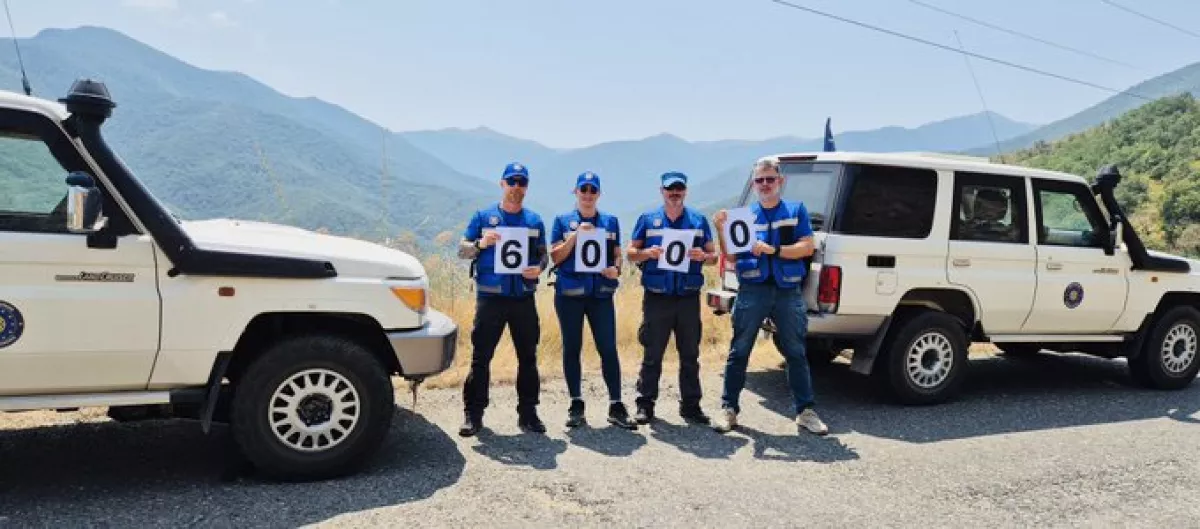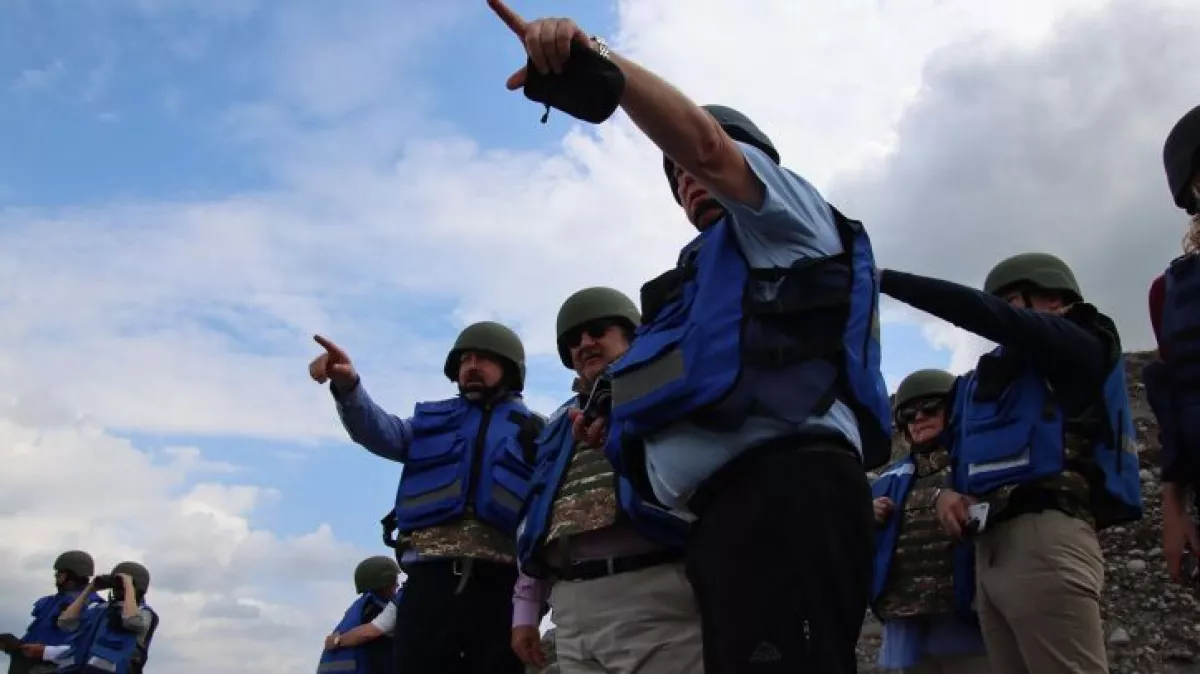"Peacekeeping" with a blurred focus Spies under the EU flag
The European Union Mission in Armenia (EUMA) conducted its 6,000th patrol along the Armenian-Azerbaijani border — a milestone it was quick to announce on its microblog on the social media platform X.

To say that the statement they posted is as far from the truth as claiming the Earth is flat would be an understatement. Let us quote this piece: “EUMA has reached a significant milestone with the completion of its 6000th patrol. This achievement reflects our continued and steadfast commitment to peace and stability in the region. We remain firmly dedicated to working alongside local communities in Armenia.” What can one say? Grandiose, in the spirit of “written, directed, and applauded by myself — with a standing ovation.”
Frankly, expecting anything different would have been pointless. But when viewed through the lens of reality, this entire performance can be unequivocally described as a combination of political manipulation, disinformation, and deliberate bias — aimed not at fostering “peace and stability,” as the Europeans claim, but rather at reinforcing a one-sided narrative that benefits Armenia.
The root of the problem lies in the fact that the EU mission appeared on the Armenian-Azerbaijani border not as a result of a genuine need for peacekeeping, but rather as the outcome of coordinated Armenian diplomacy. Following the 44-day war in 2020, Yerevan desperately sought to secure international support — and more importantly, an international presence — along its border with Azerbaijan.
Armenia had long been trying to shift the issue of bilateral settlement into the international arena. In 2022, official Yerevan began promoting the narrative that Azerbaijan was allegedly preparing “new attacks,” claiming that the only way to prevent them was to deploy “independent observers.” The EU eagerly adopted this narrative, as it aligned with Brussels’ broader political agenda of increasing its influence in the South Caucasus.
Baku has repeatedly pointed out that the EU mission engages in espionage and interprets any incidents solely through the Armenian lens, without taking Azerbaijan’s position into account. Yet Brussels has consistently chosen to ignore these concerns.
The second issue lies in the composition of the mission. Despite its declared “civilian” nature, a significant number of the observers are former military personnel and intelligence officers from EU countries. EUMA representatives have frantically tried to deny the obvious — but as the saying goes, all the moves are recorded, and we know the names and ranks of every mission member.

The third issue is that the mission’s regular reports to Brussels and public statements have never once included evidence of provocations by Armenia — despite the fact that numerous such incidents have occurred. This clearly demonstrates EUMA’s bias and its willingness to suppress information that contradicts its narrative.
Let us also note a particular detail in the mission’s latest statement: the number “6,000” is presented as a “symbol of constancy and steadfastness.” But in reality, it represents 6,000 instances in which European observers recorded the situation solely through Yerevan’s lens. Each of these patrols, in essence, serves as raw material for future political messaging in Brussels, the European Parliament, and other institutions — all of which frame Armenia exclusively as a “victim of Azerbaijani aggression.”
And this, despite the fact that Armenia occupied Azerbaijani territories for over a quarter of a century, razed countless Azerbaijani settlements to the ground, ignored United Nations resolutions, and pursued a policy of ethnic cleansing against the Azerbaijani people. This is not merely a case of double standards — it’s triple standards at work.
A fourth aspect to consider is that EUMA lacks a United Nations mandate. Therefore, its presence is purely political and does not carry international legitimacy in the broad sense of the term. It is a tool of the European Union, not of the global community — and despite claims of being “committed to peace,” its activities produce the exact opposite effect.
Yerevan has viewed the presence of European observers both as a guarantee and as a means to delay negotiations, avoid fulfilling its obligations under the peace agreement, and continue provocations along the border. One need only recall how long it took for the Armenian side to acknowledge what was already obvious to Baku: that bilateral negotiations between Azerbaijan and Armenia have yielded far more tangible results than those conducted under the “mediation” of any third party.
Moreover, Armenia continues to militarise its border regions — a move that directly contradicts the principles of the peace process. At the same time, radical nationalist groups remain active in the country, openly advocating a policy of revenge through their rhetoric.
Yet the EU mission chooses to ignore all these facts and others like them — which once again confirms the following: EUMA is a tool of information and political warfare. Its task is to entrench a narrative — favourable to Armenia — in the minds of European and global audiences, and to strengthen Yerevan’s hand at the negotiating table.








